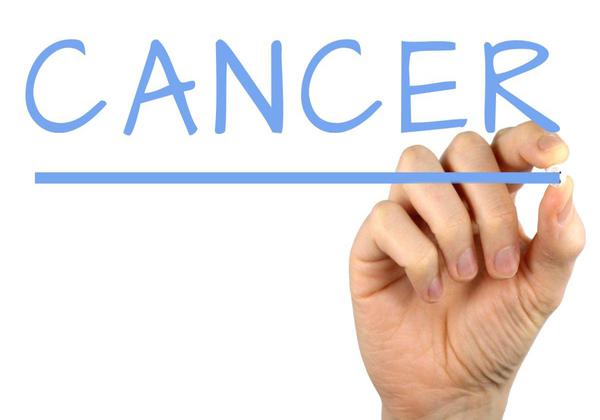Having your last meal before 9 pm or at least two hours before going to bed could lower the risk of breast and prostate cancer, suggests a new study.
Compared to those who have supper after 10 pm or those who go to bed right after the meal, people who take their evening meal before 9 pm or wait at least two hours before going to sleep have approximately 20 per cent lower risk of those types of cancers, the findings showed.
"Our study concludes that adherence to diurnal eating patterns is associated with a lower risk of cancer," said lead author Manolis Kogevinas from the Barcelona Institute for Global Health (ISGlobal) in Spain.
"The findings highlight the importance of assessing circadian rhythms in studies on diet and cancer," Kogevinas added.
For the study, published in the International Journal of Cancer, the team analysed data from 621 cases of prostate cancer and 1,205 cases of breast cancer, as well as 872 male and 1,321 female controls.
The participants were interviewed about their meal timing, sleep habits and chronotype -- an individual attribute correlating with the preference for morning or evening activity.
The participants also completed a questionnaire on their eating habits and adherence to cancer prevention recommendations.
The researchers found that cancer patients were more likely to have dinner late at night.
Breast and prostate cancers are also among those most strongly associated with night-shift work, circadian disruption and alteration of biological rhythms.
The research suggests that long-term late-night snacking may have the similar effect to night-shift work and circadian disruption.
"If the findings are confirmed, they will have implications for cancer prevention recommendations, which currently do not take meal timing into account," Kogevinas noted.
Prostate cancer which develops in the male reproductive gland poses no major threat to life if diagnosed and intervened at early stage, say health experts.
"If detected and intervened at early stage, an individual can comfortably live for 10-20 years. Prostate cancer (PCa) does not lead to death," P.N Dogra of the AIIMS, New Delhi told IANS.
"There is no major reason to worry if diagnosed with PCa. A person, even if diagnosed with the same, can will have a normal death and not out of cancer," Dogra, who heads Urology Department of the All India Institute of Medical Sciences (AIIMS), said.
"Certain cancers are silent but it should also be noticed that not all cancers are life taking one. Normal life can be comfortably led even if diagnosed with PCa," Anup Kumar, Head of Department of Urology and Renal Transplant at Safdarjung Hospital, New Delhi, said.
The experts also advised for health check-ups for men above 50, especially for those whose family members have been diagnosed with the cancer.
"We do not recommend mass screening for cancer. Those who are having symptoms related to urination should first undergo blood test and finger examination which is free in government hospitals. Following the results of the test, we recommend PSA (prostate specific antigen) test which is also done without any cost at government hospitals," Kumar maintained.
"The main symptom of PCa is associated with urination. One might face problem while urinating, can feel a burning sensation or might have to urinate multiple times at night. If any such symptoms persist, one should immediately go for check-up," Kumar suggested.
Cancer of the prostate is the second most frequently diagnosed cancer among men in the national capital accounting for about 6.78 per cent of all malignancies, according to Delhi Cancer Registry.
According to a study by International Agency for Research on Cancer, the world-wide prostate cancer burden is expected to grow to 1.7 million new cases and 4,99,000 new deaths by 2030.
According to the health experts, heredity, gene and lifestyle factors play a major role in development of prostate cancer.
"Prostate cancer, which is found only in men, mostly occurs after the age of 50. If in a family someone is diagnosed with PCa, then there is a high chance that the disease is carried forward by the offsprings. It is also noticed that fire fighters are more prone to get the disease," Dogra pointed out.
Obesity, lack of exercise and too much consumption of red meat may lead to an increase in cancer patients, the experts noted.
The experts also added that though cancer cannot be stopped, it can be prevented to some extent with adoption of healthy lifestyle routine.
"For low risk cancers, we prefer to keep under observation and we do not opt for treatment while for high risk cancers we advocate treatment considering the lifespan of patients -- when at least 10-15 years of lifespan is left. If lifespan is less, we opt for alternative therapy and don't apply any aggressive form of treatment," Dogra added.
For awareness, the experts added that they are talking with the health ministry to revive the programmes which were earlier introduced.
"PSA test should be made compulsory for everyone with symptoms. The government-run hospitals like Ram Manohar Lohia, Safdarjung and AIIMS have all the facilities available for treatment," Kumar said.
"PSA test should be made accessible in remote areas as well," Kumar stressed.
It is also promising to note that new drugs are becoming available to treat metastatic prostate cancer, the experts suggested.
"Presently, research is going to develop a vaccines to prevent prostate cancer," Dogra said.
The fight against cancer continues. With no definite cure, it still remains a deadly disease that affects millions of people yearly, causing death. Research studies highlight that oral cancer and lung cancer account for over 50% of all cancer deaths. In India an estimated number of people living with the disease are around 2.5 million. One of the major causes of cancer are gene mutations that occur after birth.
Besides this, there are other lifestyle factors that may cause changes (mutations) to the DNA of our body cells leading to uncontrolled growth of cells that can affect normal body functions. These include smoking, radiation, viruses, cancer-causing chemicals, obesity, hormonal changes, chronic inflammation, lack of exercise and more.
Reports also suggest that one out of eight men have the possibility of developing cancer in their lifetime. According to the Indian Council of Medical Research (ICMR), India is likely to have more than 17.3 lakh new cases of cancer and over 8.8 lakh deaths due to the disease by 2020 with cancers of breast, lung and cervix topping the list.
Prostate cancer, the second most common cancer among the residents of Delhi, Thiruvananthapuram, Kolkata and Pune, is increasing at the rate of 2.5 per cent per year. According to the doctors, late detection and unawareness of the disease is the sole reason that prostrate cancer has affected a total of 1.7 million people around the globe, with 2,88,000 cases in India alone. Also, citing the rise of benign prostatic hyperplasia (BPH), another serious prostrate problem, the doctors have urged persons above 40 to undergo monthly checkups.
Scientists have identified a signalling circuit in cells that can be targeted to treat advanced prostate cancer in patients who are resistant to existing therapies.
Prostate cancer is the second-leading cause of death after lung cancer in American men, researchers said. Currently, the most effective treatment for advanced prostate cancer is to deprive the cancer of what feeds it - androgen hormones, such as testosterone.
However, almost all patients eventually develop resistance to this therapy, leaving doctors with no options to counteract the inevitable.
The study at The Scripps Research Institute (TSRI) in the US shows that a "constitutively active" signalling circuit can trigger cells to grow into tumors and drive therapy resistance in advanced prostate cancer.
A cell signal pathway with constitutive activity requires no binding partner to activate; instead, the signalling circuit continually activates itself.
This signalling circuit, which is composed of a protein complex and several other molecules, controls the expression of stem cell transcription factors (proteins that guide the conversion of genetic information from DNA to RNA) that fuel the aggressive growth of these resistant cancer
cells.
"The fact that the constitutive activation of NF-kB in the circuit is independent of traditional activation opens the door for potential treatment options," said Jun-Li Luo, associate professor at TSRI.
NF-kB plays important roles in cancer development, and it is regarded as one of the most important targets for cancer therapy.
However, the use of NF-kB inhibitors in treating cancer is complicated by severe side effects related to immuno suppression caused by indiscriminate inhibition of NF-kB in normal immune cells.
Luo noted that targeting the other components in this signalling circuit would avoid the suppression of NF-kB in normal immune cells while keeping the potent anti-cancer efficacy.
In addition to IkBa/NF-kB, the signalling circuit includes the microRNA miR-196b-3p, Meis2 and PPP3CC. While miR-196b-3p promotes tumor development, Meis2, which is an essential
developmental gene in mammals, can disrupt the circuit when over expressed.
The protein PPP3CC can inhibit NF-kB activity in prostate cancer cells.
"Disrupting this circuit by targeting any of its individual components blocks the expression of these transcription factors and significantly impairs therapy-resistant prostate cancer," said Ji-Hak Jeong, research associate at TSRI.
The study was published in the journal Molecular Cell.
The fight against cancer continues. With no definite cure, it still remains a deadly disease that affects millions of people yearly, causing death.
Research studies highlight that oral cancer and lung cancer account for over 50% of all cancer deaths. In India an estimated number of people living with the disease are around 2.5 million.
One of the major causes of cancer are gene mutations that occur after birth. Besides this, there are other lifestyle factors that may cause changes (mutations) to the DNA of our body cells leading to uncontrolled growth of cells that can affect normal body functions.
These include smoking, radiation, viruses, cancer-causing chemicals, obesity, hormonal changes, chronic inflammation, lack of exercise and more.
Reports also suggest that one out of eight men have the possibility of developing cancer in their lifetime.
According to the Indian Council of Medical Research (ICMR), India is likely to have more than 17.3 lakh new cases of cancer and over 8.8 lakh deaths due to the disease by 2020 with cancers of breast, lung and cervix topping the list.
Prostate cancer, the second most common cancer among the residents of Delhi, Thiruvananthapuram, Kolkata and Pune, is increasing at the rate of 2.5 per cent per year.
According to the doctors, late detection and unawareness of the disease is the sole reason that prostrate cancer has affected a total of 1.7 million people around the globe, with 2,88,000 cases in India alone.
Also, citing the rise of benign prostatic hyperplasia (BPH), another serious prostrate problem, the doctors have urged persons above 40 to undergo monthly checkups.













